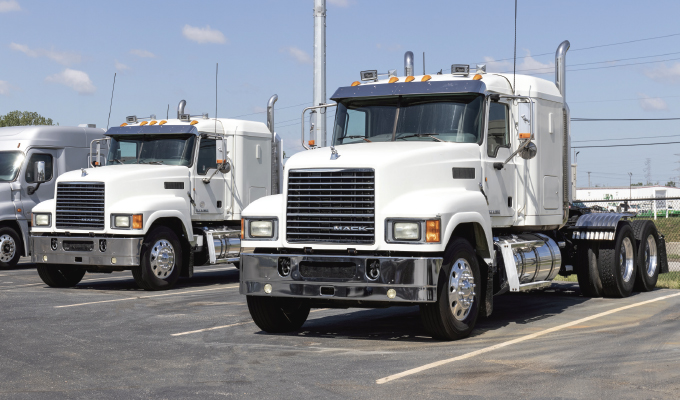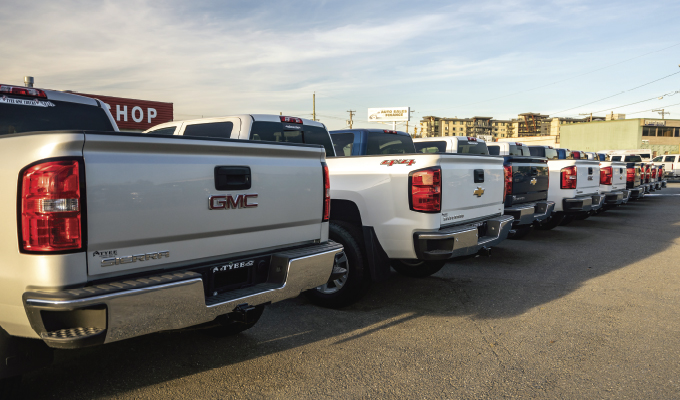Advanced technologies are playing a larger role in the construction industry, helping ready-mix producers make gains in product quality and operational efficiency. Technology solutions are changing construction fleet management by enhancing access to essential information that contributes to overall operational effectiveness.
Cloud-based monitoring systems track data and make it accessible from any internet-connected device, including tablets and smartphones. This technology provides multiple users easy, often real-time access to key insights. Cloud-based platforms allow users to monitor and manage their fleets at anytime from anywhere.
Artificial Intelligence, or AI, is revolutionizing many aspects of the construction industry—from vehicle routing to maintenance. AI uses advanced algorithms and machine learning to create efficiencies and provide operational insights. Predictive analytics supplied by AI can help businesses identify and address issues before they become major problems.
Telematics is a combination of telecommunications and informatics. It describes how telecommunications devices send, receive, and store data related to mobile connected assets. As a system, telematics systems provide crucial operational insights. For instance, fleet telematics paired with GPS tracking gives fleet managers insights into asset location, miles traveled, idling, vehicle speeds, driver behavior, and more. Real-time and historical data are accessible via a cloud-based portal to help fleet managers, dispatchers, and other stakeholders make better decisions in the moment and for the long term.
Connected construction technology integrates data across the project lifecycle, ensuring all information flows seamlessly from one system to another. Automatic job statusing is one aspect of connected construction that gives fleet managers full visibility, allowing them to better allocate resources and ensure that concrete is delivered to a site on time. Knowing how many concrete mixer trucks are ticketed, en route, on site, pouring, and traveling back to the plant gives key personnel the information they need to make sure jobs are done properly.

INTERCONNECTED SYSTEMS
Different technologies provide producers with important insights into their material and operations. Interconnectivity maximizes the benefit of these technologies by bringing them together into an integrated system. Interconnectivity helps users see the elements of the concrete as it’s being batched. They can see active measurement of material while it’s in a drum, while chemical reactions are taking place. Reports can be sent to a quality control technician, a manager, and a driver while they are operating the vehicle. This interconnectivity of systems provides the actionable insights needed to ensure quality at every step in the process.
AI FOR OPERATIONS
Artificial intelligence can process a massive amount of data and turn it into actionable insights delivered in near real time. In this way, AI can augment human decision-making and help producers optimize systems. AI can also help producers more proactively manage challenges that arise throughout the day.
Also, as a new, more tech-savvy workforce enters the industry, AI can bridge the experience gap left when more seasoned workers retire—helping new workers to be more effective sooner. In the same vein, AI can help address labor shortages by enabling fewer workers to oversee more operational aspects, such as a single manager being able to effectively supervise multiple plants.
Finally, predictive analytics delivered via AI can help businesses better manage maintenance (by predicting when a breakdown may occur and recommending preventive fixes), inventory, delivery, and many other business functions.
Advanced technologies, such as artificial intelligence, will continue to reshape the construction industry. Businesses that embrace these emerging technologies can gain a competitive advantage today and be better prepared to face the challenges of the future.
ABOUT THE AUTHOR
Paul Clark has more than 20 years of experience in the software and transportation industries, with a focus on helping companies manage risk and achieve higher levels of efficiency and compliance. He’s passionate about utilizing technology to help companies solve business problems. Find out more, visit www.eroad.com.




